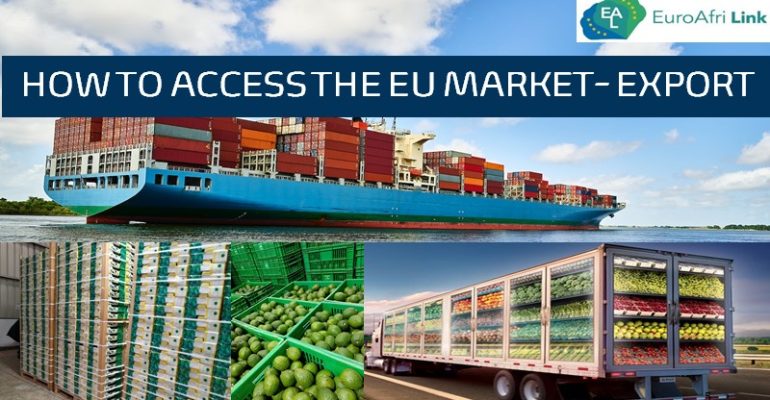Trade Relations between Africa and Europe

Trade Relations between Africa and Europe
Strategies for Enhancing Trade Relations between Africa and Europe
Trading between Africa and Europe can be rewarding to both continents. Yet it is viewed as a complex process by some EU and African businesses, buyers, and investors for several reasons. This could be due to the diverse economic, political, and cultural landscape of both continents. From experience working with EuroAfri Link, the biggest challenge is the difference that exists between the two continents as a result of these core factors.
Understanding Africans
For Europeans to effectively engage with African markets, they must develop a deeper understanding of African cultures, business practices, and economic landscapes. Simultaneously, Africans need to gain insights into European market demands, regulatory frameworks, and trading norms. In bridging this gap, the primary challenge lies in bridging the knowledge gap. Initiatives aimed at fostering dialogue, educational exchanges, and collaborative training programs can play a pivotal role in enhancing mutual comprehension. By investing in these areas, both Europeans and Africans can better navigate their respective markets, ultimately leading to more fruitful trade relationships.
Cultural Differences in Business Practices: Europeans vs Africans
Communication Styles
When examining the business practices of Europeans and Africans, it is essential to recognize the distinct communication styles prevalent in each region. Europeans typically adopt a more direct and formal approach to communication. This means that they often prefer clear, concise exchanges that focus on what they are looking for – needs and preference. In contrast, African cultures generally prioritize relationship-building over directness. Communication in many African contexts may involve more nuanced interactions where understanding and personal connections are valued.
Negotiation Approaches
The differences extend into negotiation practices as well. European negotiators may approach discussions with a focus on achieving specific outcomes, often adhering to structured processes. Conversely, African negotiators may take a more holistic view, emphasizing the importance of establishing rapport and mutual respect before delving into the specifics of a deal. This relational aspect can lead to longer negotiation periods but ultimately fosters stronger partnerships.
To effectively bridge these cultural differences, both European and African business professionals must engage in cross-cultural understanding, training and education. Such initiatives can enhance a better understanding of each other’s values, communication styles, and negotiation tactics. By investing time in learning about cultural nuances, both parties can foster better collaboration and create mutually beneficial business relationships.
Improve Education for African Traders
Many African traders aiming for international markets like the EU, face significant challenges due to a lack of knowledge and skills necessary to access the EU market like up-to-date knowledge on regulations, standards, and quality. This gap in understanding export quality targeting the EU market seriously hampers their ability to compete effectively in the global marketplace. Thus, enhancing education for African traders/exporters through collaborative efforts and targeted training initiatives is vital for fostering fair competition in global trade. By investing in knowledge acquisition and curriculum development, both African nations and their trading communities can significantly improve their standing in international markets and be competitive.
Language Barriers in African Business Communication
While a significant number of Africans are proficient in English or French, the continent is home to hundreds of indigenous languages. This linguistic diversity can create substantial challenges for European businesses attempting to communicate effectively with their African counterparts, particularly in rural regions where local dialects may prevail and where most of the agri products are sourced for the EU market.
To navigate these complexities, businesses must invest in training and education that focus on understanding the preferences and needs of African producers and European consumers. Additionally, having a representative who can bridge the gap between both parties is essential. This representative role helps mitigate the risks of miscommunication and misunderstanding, which can adversely affect business relationships and outcomes.
EuroAfri Link’s Role in Bridging the Market Gap Between Europe and Africa
Facilitating Trade and Financial Connections
EuroAfri Link plays a crucial role in connecting European consumers with African producers, as well as linking African businesses with EU funders and investors. This initiative aims to enhance trade relations by addressing the financial disparities that exist between these two regions.
Fostering Healthy Business Relationships
EAL assists African businesses in cultivating strong, transparent relationships with their European counterparts. By providing insights into market trends and consumer preferences within the EU, EuroAfri Link helps mitigate misunderstandings that could impede successful project outcomes. The EAL’s EU Trade Ticket, a monthly event for farmers, producers, exporters and exporters to be outside the EU like Africa is a step towards empowering African exporters with the knowledge and tools needed to navigate the EU market with ease and confidence.
Representation of Producers in the EU Market
EuroAfri Link acts as a representative for African producers, advocating on their behalf to potential buyers in the European market. This representation is vital for ensuring that African products gain visibility and acceptance among EU consumers. Also, that producers sells products in the EU that is of quality and meets the EU standards.
Thus, several factors contribute to the existing trade gap between the EU and Africa. To effectively bridge this divide, both parties need to invest in a deeper mutual understanding. EuroAfri Link plays a pivotal role in facilitating this process.
Join us and be part of the solution!
Author: Patience Chindong

